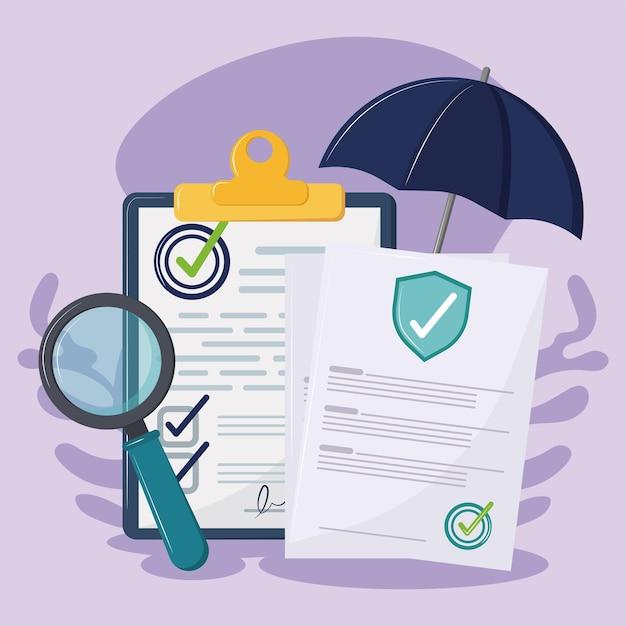Are you an Etsy seller looking to protect your business from potential legal issues? Do you know that as a small business owner, you could be held liable for any harm or damage caused by your products? That’s where Etsy liability insurance comes in.
In this comprehensive blog post, we’re going to explore everything you need to know about Etsy liability insurance. We’ll also discuss other essential topics, such as Etsy fees explained, small business insurance, Etsy shop policy examples, and product liability insurance.
If you’re new to selling on Etsy, you might be wondering if insurance is necessary. Do you need insurance to sell on Etsy? What are the Etsy insurance requirements? Does Etsy have insurance for sellers? We’ll answer all these questions and more to help you make informed decisions about your small business.
So, whether you sell handmade crafts, vintage goods, or digital products, this post will provide you with essential information to help protect your business. Let’s dive in!
Understanding Etsy Liability Insurance
If you’re a creative entrepreneur, Etsy is the perfect platform to put your business out there. However, with the joy of owning a business comes responsibility, and that’s where insurance comes in. As an Etsy seller, you need to protect your business from liability risks that come with owning a business. This is where Etsy liability insurance comes in handy.
What is Etsy Liability Insurance
Etsy liability insurance is a policy designed to protect Etsy business owners from third-party claims that may arise as a result of running your business. It provides coverage for third-party property damage, bodily injury, and advertising injury claims that may be caused by your business operations. This policy covers a wide range of Etsy businesses, including handmade product sellers, vintage and antique dealers, and supplies sellers.
Why Do You Need Etsy Liability Insurance
As a business owner, a lawsuit from third-party claims can wipe you out financially and damage your reputation, no matter how baseless the claim may be. Therefore, it’s vital to have an insurance policy that will protect you from such situations. Even if you have a small Etsy business, you’re not immune to these types of claims, which is why having Etsy liability insurance is essential. It’s better to be safe than sorry.
What Does Etsy Liability Insurance Cover
Etsy liability insurance offers coverage for a range of liability exposures, including third-party bodily injury, property damage, and advertising injury. Specifically, Etsy liability insurance covers:
-
Personal and advertising injury: This coverage applies to claims resulting from non-physical injury, such as false advertising, defamation, or copyright infringement.
-
Products liability: This coverage applies if your products have caused injury or harm to third parties, and they sue you for damages.
-
Premises liability: This coverage applies if a third party is injured on your business premises, and they sue you for damages.
How Much Does Etsy Liability Insurance Cost
The cost of Etsy liability insurance depends on several factors, such as your business operations, location, and the coverage limit you choose. Generally, insurance premiums start at around $200 per year, but it can be higher or lower depending on your business needs.
Etsy liability insurance provides protection for your business that you simply cannot afford to overlook. With the right coverage, you can operate your business with peace of mind, knowing that you’re protected from potential liability risks. It’s essential to shop around to find the right insurance policy that fits the needs of your Etsy business.
Etsy Fees Explained
If you’re new to Etsy, one thing you might have trouble understanding is their fees. Here’s a breakdown to help you understand them better.
Listing Fee
For every item you list on Etsy that goes live, Etsy charges a $0.20 listing fee. This fee is automatically deducted from your Etsy account balance or the payment method you have on file. It’s important to note that this fee is per item and per listing period (4 months).
Transaction Fee
When you make a sale, Etsy charges a 5% transaction fee on the total item cost, including shipping and handling. This fee is automatically deducted from your payment, so make sure to factor this into your pricing.
Payment Processing Fee
When you receive a payment from a buyer, Etsy charges a payment processing fee, which varies depending on your location. If you’re in the United States, the fee is 3% + $0.25 per transaction. If you’re in another country, the fee can be higher. This fee is also automatically deducted from your payment.
Currency Conversion Fee
If you sell in a different currency than your account’s currency, Etsy charges a 2.5% currency conversion fee.
Advertising Fee
Etsy offers advertising services to help you promote your items. If you choose to participate in their advertising program, Etsy will charge you an advertising fee of 12-15% on the sale price of your item, including shipping.
Understanding Etsy’s fees is crucial to running a successful Etsy shop. By factoring in these fees into your pricing strategy, you can ensure that you’re making a profit while still offering competitive prices to your customers.
Small Business Insurance
As a business owner, it’s essential to have insurance coverage to protect against unforeseen circumstances. Small business insurance is a type of insurance policy designed to safeguard small business owners from financial losses resulting from property damage or liability claims.
Types of Small Business Insurance
There are different types of small business insurance, such as:
General Liability Insurance
General liability insurance is a policy that covers your business against claims of bodily injury, property damage, and personal injury.
Property Insurance
Property insurance covers the physical property of your business, including buildings, equipment, inventory, and supplies, against damage or loss.
Workers’ Compensation Insurance
Workers’ compensation insurance protects your business from injury claims by your employees while on the job.
Business Interruption Insurance
Business interruption insurance covers lost income if your business experiences a loss that causes a temporary shutdown.
Why Small Business Insurance Matters
Small business insurance ensures that your business is protected from financial loss resulting from legal claims, accidents, or natural disasters. Business insurance can help you:
- Protect your employees
- Comply with legal requirements
- Avoid financial losses
- Gain customer trust
- Secure funding opportunities
With small business insurance, your business can operate with the confidence that it’s protected from unforeseen risks and liabilities.
In conclusion, small business insurance is an essential requirement for Etsy sellers to protect their businesses. This type of insurance provides coverage for legal claims, accidents, or natural disasters that may result in financial loss. Business owners should consider the different types of small business insurance available and choose policies that cater to their business needs. By having small business insurance in place, Etsy sellers can focus on growing their business with peace of mind.
Examples of Etsy Shop Policies
As an Etsy seller, it is essential to have a clear and concise shop policy for customers to read before they make a purchase. To help you get started, we have compiled some of the most popular and effective Etsy shop policy examples used by successful Etsy sellers.
Shipping Policy
One of the most critical parts of your shop policy is your shipping policy. Be sure to include information on how long it takes for orders to ship and any additional fees that may apply, such as rush orders or international shipping. A clear shipping policy will help manage customer expectations and avoid disputes.
Returns and Exchanges
It’s important to have a clear policy for returns and exchanges to ensure customer satisfaction. Most successful Etsy sellers offer a liberal return policy, allowing customers to return items within a specific timeframe for a full refund or exchange. Be sure to include any conditions or exceptions, such as items that cannot be returned or items that must be returned in their original packaging.
Payment Policy
Your payment policy should outline the accepted payment methods and when payment is due. Many successful Etsy sellers require payment in full at the time of purchase, while others offer payment plans or layaway options. Be sure to also include any fees or penalties if a payment is missed or declined.
Privacy Policy
As an online business, it’s crucial to protect your customer’s privacy, and Etsy requires all sellers to have a privacy policy. This should include information about how you collect and use customer data, how that data is protected, and any third parties who may have access to the information.
Product Guarantee
Many successful Etsy sellers offer a product guarantee, which provides customers with the assurance that their purchase is of high quality and will last for a reasonable amount of time. Be sure to include the timeframe covered by the guarantee and any exclusions, such as damages caused by misuse or accidents.
In conclusion, having a well-written Etsy shop policy is essential to the success of your business. By incorporating the examples we’ve provided, you can create a comprehensive policy that addresses all aspects of your business and sets clear expectations for your customers.
Product Liability Insurance
Etsy is a platform that allows creative entrepreneurs to sell their crafts, handmade items, and vintage collections online. However, like any business, selling on Etsy comes with some risks. One of the most significant risks is product liability. What happens if you sell a product that causes harm or injury to a customer? This is where product liability insurance comes in.
What Is Product Liability Insurance
Product liability insurance protects your business against claims arising from defects or damage caused by products you sell. It typically covers property damage, bodily injury, and legal fees. Even if you sell items that are unlikely to cause injury, you can’t be sure that someone won’t try to hold you responsible for harm caused by your product. That’s why product liability insurance is essential for any Etsy seller.
Do You Need Product Liability Insurance
If you are an Etsy seller, you should consider getting product liability insurance to protect your business. It’s not mandatory, but it’s a wise investment. It can save you from financial ruin if an incident occurs.
How Much Does It Cost
The cost of product liability insurance varies depending on your business and the coverage you need. It’s usually calculated based on the type of products you sell, the volume you sell, and your risk level. You can get a quote from an insurance company that specializes in product liability insurance to find out how much it will cost for your specific business.
How Can You Get Product Liability Insurance
To get product liability insurance, you can contact an insurance broker or company that specializes in business insurance. They will assess your business’s risk level and help you get a policy that fits your needs.
Product liability insurance is an essential aspect of doing business on Etsy. It protects you from financial loss if a customer sues you for harm caused by your product. While it’s not mandatory, it’s a wise investment for any Etsy seller who wants to protect their business. Don’t risk it – get product liability insurance today!
Etsy Insurance Requirements
As an Etsy seller, you’re probably wondering what insurance requirements you need to meet to keep your business running smoothly. Here’s what you need to know:
General Liability Insurance
Etsy requires all sellers to have general liability insurance with a minimum coverage of $1 million per occurrence and $2 million in the aggregate. This type of insurance protects you from third-party claims related to bodily injury, property damage, and advertising injury.
Product Liability Insurance
If you sell physical products on Etsy, you should also consider getting product liability insurance. This type of insurance protects you in case a customer sues you for an injury or damage caused by one of your products.
Business Property Insurance
Etsy doesn’t require business property insurance, but it’s a good idea to have it anyway. This type of insurance protects your business property, such as your inventory and equipment, from theft, damage, or loss.
Workers’ Compensation Insurance
If you have employees, you may need to provide workers’ compensation insurance. This type of insurance protects your employees in case they get injured or sick while on the job.
In summary, Etsy requires all sellers to have general liability insurance, but it’s also a good idea to consider product liability, business property, and workers’ compensation insurance. By protecting your business with the right insurance coverage, you can minimize your risks and focus on growing your business.
Do I Need Insurance to Sell on Etsy
Etsy is a popular online marketplace for creative entrepreneurs and crafters to sell their handmade goods. If you’re an Etsy seller, you might be wondering if you need insurance to protect yourself and your business. The short answer is yes, but let’s dive into the details.
Understanding Your Risks as an Etsy Seller
Selling on Etsy comes with some unique risks that traditional brick-and-mortar businesses may not face. For example, if a buyer claims that your product caused them harm, you could face a lawsuit. Or if your product is damaged during shipping, you’ll need to be able to cover the cost of refunds or replacements. These are just a few examples of the potential risks you might face as an Etsy seller.
Etsy’s Insurance Policy
Etsy offers a liability insurance policy for sellers, but it’s only available in certain countries. Additionally, the policy has some limitations and doesn’t cover every type of risk. For example, it doesn’t cover intellectual property disputes or data breaches.
The Benefits of Having Your Own Insurance
While Etsy’s insurance policy can provide some coverage, many sellers choose to get their own insurance policy to be fully protected. This way, you can customize your coverage to meet your specific needs. For example, you could get a policy that covers intellectual property disputes or data breaches.
How to Get Insurance for Your Etsy Business
To get insurance for your Etsy business, you’ll need to look for an insurer that specializes in business insurance for small businesses. Make sure to get quotes from several insurers to find the best coverage at the best price. You’ll also need to provide information about your business, such as how much revenue you generate and the types of products you sell.
In conclusion, while Etsy’s insurance policy can provide some coverage, it has limitations. To fully protect yourself and your business, it’s a good idea to get your own insurance policy. Make sure to shop around and get quotes from several insurers to find the right coverage for you.
Does Etsy Have Insurance for Sellers
Many people wonder if Etsy, the popular e-commerce platform that allows individuals to sell handmade and vintage items, provides any form of insurance for its sellers. While Etsy does not offer insurance directly, there are still ways that sellers can protect themselves and their businesses.
Liability Insurance
One type of insurance that Etsy sellers may want to consider is liability insurance. Liability insurance can protect against claims made against a seller in the event that a customer is injured or suffers damage to property as a result of a product sold by the seller. This type of insurance can also cover legal fees and other costs associated with defending against a claim.
Private Insurance Providers
While Etsy itself does not offer insurance, there are many private insurance providers that offer liability insurance specifically tailored to the needs of small business owners, including Etsy sellers. These providers can offer coverage for a variety of risks, including product liability, general liability, and professional liability. Sellers may also want to consider insurance that covers their business property, as well as coverage for loss of income due to unexpected events such as natural disasters or business interruptions.
Bottom Line
In conclusion, although Etsy does not offer insurance for its sellers, there are still options available to protect a seller’s business and its customers. Liability insurance is one option to consider, and there are many private insurance providers that offer policies tailored to the needs of small businesses. As with any insurance policy, it is important to research options thoroughly and choose coverage that adequately addresses the risks of your specific business.
Overall, it is important for Etsy sellers to take proactive steps to protect their businesses and minimize potential risks. While insurance can be a valuable tool in this process, it is just one piece of the puzzle. Sellers should also prioritize customer safety and satisfaction, invest in quality products and materials, and seek out professional advice when needed. With these steps and a bit of luck, Etsy sellers can build successful businesses and thrive in the exciting world of e-commerce.
Do You Need Insurance to Run an Etsy Shop
As an Etsy shop owner, you may be wondering if you need insurance to protect yourself and your business. The truth is, having insurance can provide a layer of protection that can safeguard you from potential lawsuits, property damage, and losses.
What Kind of Insurance Do You Need for Your Etsy Shop
There are different types of insurance coverage that you may want to consider for your Etsy shop, depending on the type of products you sell and the risks associated with your business. Here are a few types of insurance you may want to consider:
General Liability Insurance
General liability insurance provides coverage if someone gets injured on your property, if you damage someone else’s property, or if someone claims that your products caused them harm.
Product Liability Insurance
Product liability insurance provides coverage if one of your products causes harm or injury to someone. If you’re selling products on Etsy, it’s important to consider product liability insurance.
Business Property Insurance
Business property insurance protects your business assets, such as inventory, equipment, and supplies. If your business property is damaged or destroyed, business property insurance can help cover the costs of repair or replacement.
Is Insurance Required to Run an Etsy Shop
While there is no legal requirement for Etsy shop owners to purchase insurance, it’s important to consider the risks associated with your business. Accidents can happen, and without insurance, you may be held responsible for damages or losses out of your own pocket.
While purchasing insurance is not required to run an Etsy shop, it can provide valuable protection and peace of mind. Take the time to evaluate your business risks and consider the insurance coverage that best fits your needs as an Etsy shop owner.
Do I need insurance to sell handmade crafts
Selling your handmade crafts on Etsy can be a fun and profitable way to showcase your creativity and make some extra cash. However, as with any business venture, there are risks involved. That’s where insurance comes in.
Understanding Etsy Liability Insurance
Etsy offers its sellers a liability insurance policy that covers up to $1 million in damages for certain types of claims related to selling on their platform. This insurance policy is optional, but it can give you peace of mind and protect your business in case of an accident.
What Does Etsy Liability Insurance Cover
The Etsy seller protection policy provides coverage for claims that arise from bodily injury, property damage and/or personal and advertising-related injury arising out of your products or services sold on Etsy. This policy also protects sellers against claims of defamation, libel, and slander.
Should I Get Additional Insurance
While Etsy’s liability insurance covers specific claims, it may not cover all the risks you face as a business owner. Additionally, coverage limits may not be sufficient for every seller. That’s why it’s important to evaluate your business needs and obtain additional coverage if necessary. For example, you may consider getting product liability insurance, which covers claims related to injuries caused by your product.
While insuring your Etsy business is optional, it’s an essential step to protecting your hard work and creativity. By understanding the risks and obtaining appropriate coverage, you can focus on what you do best – creating beautiful handmade crafts for satisfied customers. Remember to take the necessary measures to protect your business, and enjoy the journey of being an Etsy shop owner!



